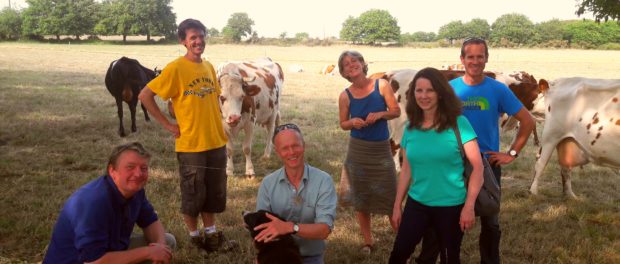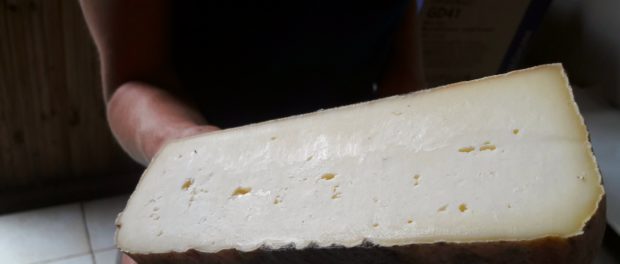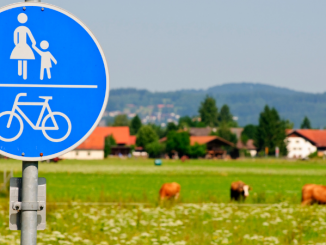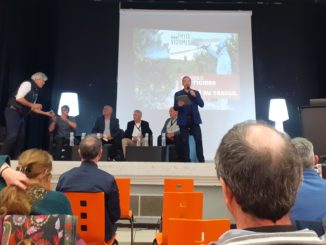How can we get young people back onto the land, into rural areas and contributing to local culture and the local economy? There are many routes. Here’s one approach a couple have taken in Brittany.

Agroecological farming and food production can offer a model for rural repopulation. It – especially horticulture and mixed farming – can be more labour intensive. And, in any case, agroecology and organic farming lend themselves to more mixed, diverse practices. They also chime well with the ethos of young people from urban areas or even from abroad who want to relocate to the countryside.
There are different ways to develop organic farm food businesses – and help fight rural depopulation too – which the ARC2020 team encountered in Brittany recently on a study trip. After visiting Paul, our stress-free organic dairy farmer we then visited Serge and Euriell.
What we visited looked like a farm, felt like a farm, and of course it was in essence a farm. However, what was encountered was more accurately a farm-based food business.
Serge Brassebin and Euriell Coatrieux are, primarily, cheese producers. They employ a local man to do the outdoor work – in other words, all the farming up to but excluding milking. So all the grassland management, buying and selling, breed selection, husbandry, is done by a local man they pay to do specific tasks.
This is, in their own way of thinking, collective farming with what they call worker transparency. Serge’s background is a chef while Euriell’s is in history – neither is from a farming background.
This food production business, based on an organic farm, involves the pair working together to make a range of cheeses, milk, butter and yoghurt they sell at three local markets. All are produced on the farm.
The milking parlor is right beside the cheese processing unit. Serge and Euriell milk the cows once a day, and produce a range of five cheeses, called la Ferme de Kerdavid, from young to mature and more in a Normandy style than Brittany style.
When supply runs low, rather than buy in milk or cheese, they simply take time off cheese production and distribution, and focus on other things.
For them, the story of single farm cheese sold locally is core – they periodically stop and do other things, rather than buying in organic milk from elsewhere. This would be too confusing a message for their customers, they feel.

They have two milk tanks, on supplying organic milk farmer organisation Biolait, the other for their own purposes. The (smaller) percentage that goes to Biolait is for Biolait’s skimmed milk range, and tends to be a seasonal surplus. Biolait collect from 1000 organic farmers from all parts of France – however remote – and are growing rapidly as a force in French organics.
Their 22 cows graze on 55 hectares. Over six or so lactations, the (mostly Montbeliarde) cows produce just under 5000 litres of milk a year. While this may seem like a very comfy stocking rate – for the cows – the land is both dry and salty so the carrying capacity is lower anyway. No silage is fed, but organic hay is brought in while Sorghum is grazed in the field.
As is typical in France machinery is either rented or from the local CUMA – the machinery co-op.
Rural out migration then, isn’t a foregone conclusion. There are different approaches adopted by all kinds of people – to get more connected to the land and to food.
A version of this article appeared in the Irish Examiner’s Farming section.




